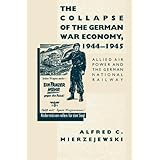
Average Reviews:

(More customer reviews)Are you looking to buy After Victory: Institutions, Strategic Restraint, and the Rebuilding of Order After Major Wars? Here is the right place to find the great deals. we can offer discounts of up to 90% on After Victory: Institutions, Strategic Restraint, and the Rebuilding of Order After Major Wars. Check out the link below:
>> Click Here to See Compare Prices and Get the Best Offers
After Victory: Institutions, Strategic Restraint, and the Rebuilding of Order After Major Wars ReviewThis book deals with a central question. Why do leading states after major wars institutionalize and even strategically restrain their powers? Ikenberry's response is that 'states in this situation have sought hold onto power and make it last, and that this has led these states, paradoxically, to find ways to set limits on their power and make it acceptable to other states".(p. xi) To analyze this central puzzle, the author looks at the settlements of 1815, 1919, and 1945 as well as the end of the cold war. These times are important turning points in the history of world politics as major powers search for a new international order.Moreover, this book has important implications for contemporary American foreign policy makers. "The United States has entered the new century as the world's lone superpower. Whether that extraordinary power can be put to good use in creating a lasting and legitimate international order will in no small measure determined by how American officials use and operate within international institutions. It might appear that there are few constraints or penalties for the United States to exercise its power unilaterally and at its own discretion. But the theory and historical experiences in these chapters suggest otherwise. The most enduringly powerful states are those that work with and through institutions". (p.20)
Overall, After Victory is a very good contribution to diplomatic history, international relations theory as well as to American foreign policy.After Victory: Institutions, Strategic Restraint, and the Rebuilding of Order After Major Wars Overview
Want to learn more information about After Victory: Institutions, Strategic Restraint, and the Rebuilding of Order After Major Wars?
>> Click Here to See All Customer Reviews & Ratings Now


